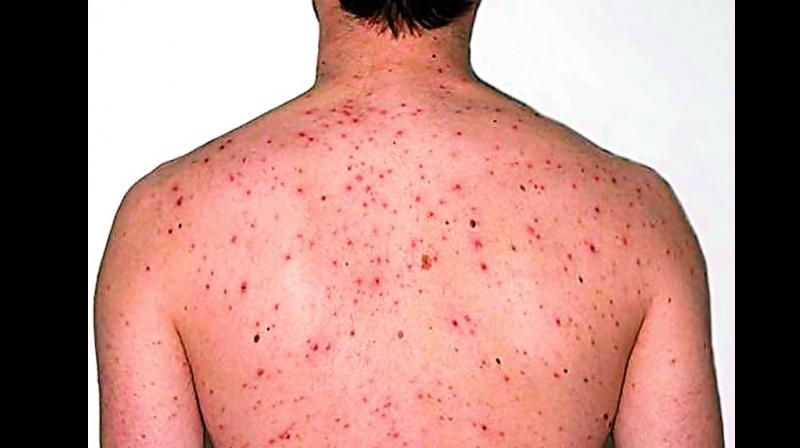Doctors advise against traditional chickenpox remedies
Chickenpox is a highly contagious viral disease that usually affects children

Hyderabad: Regardless of their basis in science, indigenous treatments for chickenpox continue to be administered in the state. Doctors said that while some practices were harmless, others can put patients at risk.
Chickenpox is a highly contagious viral disease that usually affects children. Often, those affected by it are not given a bath for six days, while patients are bathed with water mixed with neem leaves on the seventh day.
Patients are also given aspirin tablets, which doctors advise against. Further, patients are not given meat or eggs.
Dr Shivaranjani Santosh, consultant paediatrician with a leading private hospital in Hyderabad, said that contrary to existing beliefs, patients should take regular baths, eat easily digestible food and keep themselves hydrated.
However, she said that taking aspirin raises the risk of the patient developing Reye’s syndrome, which can cause serious brain and liver damage.
But, not all practices are harmful.
Dr T. Usha Rani, professor and HoD (paediatric department) at Niloufer Hospital, said, “Adding neem leaves to water for bathing is fine because it is an antiseptic. Also, isolation of the child is done as a custom, and not for medical reasons. But that too works, as they should be quarantined anyway.”
Rashes cause monkeypox scare
Dr Usha Rani said hundreds of cases of hand, foot and mouth disease (HFMD), a common virus that affects children, were being recorded at the hospital, as is usual during monsoon. However, as this mild disease also causes rashes, it was leading to fear of monkeypox.
“Parents are assuming any rash on the body to be caused by monkeypox. They are also watching news about monkeypox on TV and getting more scared,” she said.
While HFMD leads to small rashes only on the palms, soles, hands and feet, which, by the third or fourth day, may spread to thighs and buttocks, in monkeypox, the lesions are bigger, and can break out anywhere, including on the face, and can become pus-filled too, she said.

